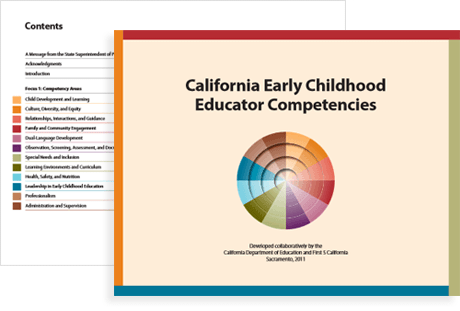We each bring our experiences, perspectives, and worldview to our work – the good, the bad, and all of the in-between. These are what make us who we are and influence our practice with children, families, and colleagues. We also hold in our minds a picture of our ideal selves. Knowing more about yourself can pave the way to becoming the person and the early educator that more closely matches your ideal self. This first Key to Reflection and Inquiry can help you become more self-aware and intentional in examining who you are now and who you want to become.

How does it make you feel when children's big feelings burst onto the scene? What kinds of child behaviors typically push your buttons?
Use this template to record your observations, thoughts, and feelings. Download the Template
Deepen your understanding of the expectations for self-awareness in guiding children's behavior by reviewing the Topic: Reflective practice to provide guidance to children in Performance Area 2 of the CA ECE Competencies. Scroll to page 34.
Can you find other places in this competency area that address these questions?

Visit Vanderbilt.edu to learn about projects of the Center on the Social and Emotional Foundations for Early Learning (CSEFEL).